Search Images
Browse Content (p. 1640)
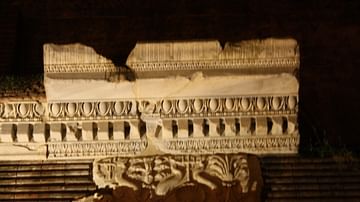
Image
Dentils
a cornice with dentils, from the rear of the Pantheon (c. 125 CE), Rome.
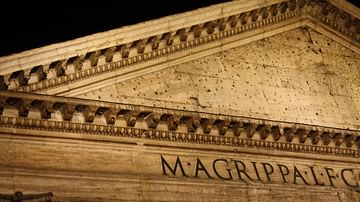
Image
Pediment, Pantheon
The pediment of the pantheon in Rome, completed c. 125 CE. Once it would have carried a gilded bronze emblem, possibly an eagle and wreath.
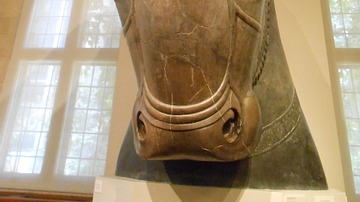
Image
Colossal Bull Head, Persepolis
Colossal Bull Head from Hundred-Column Hall, Dark gray limestone, Persepolis (Iran), Achaemenid Period (Reign of Xerxes and Ataxerxes I, 486-424 BCE), Oriental Institute, University of Chicago.
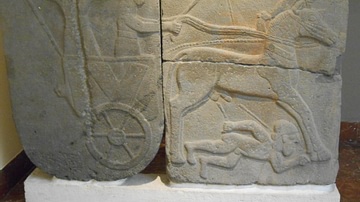
Image
Hittite War Chariot
Relief orthostat (stone slab at base of wall) of war chariot from Sam'al (Turkey), west side of citadel gate; Basalt; Late Hittite period (9th cent BCE); Museum of the Ancient Orient, Istanbul Archaeological Museums.
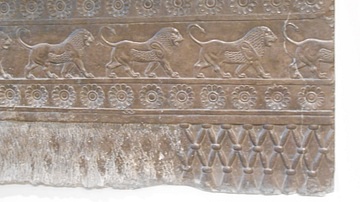
Image
Striding Lions, Persepolis
Frieze of Striding Lions, Perspolis (Iran), Palace G, Limestone, Achaemenid Period (Reign of Darius I and Xerxes, 522-465 BCE), Oriental Institute, University of Chicago This carving represents a cloth canopy with tassels (partly chipped...
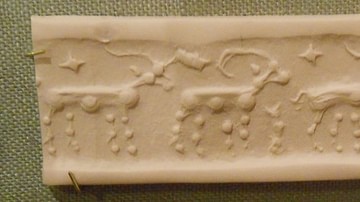
Image
Cylinder Seal, Horned Animals
Horned Animals with Stars Overhead; Cylinder seal impression; Basalt, serpentine; Khafajah, Sin Temple II (Iraq), Late Uruk-Jamdat Nasr period (3350-2900 BCE). Oriental Institute, University of Chicago
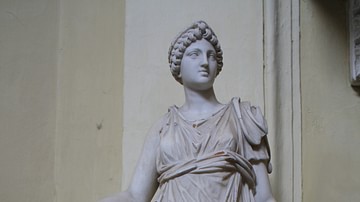
Image
Hygieia, Vatican Museums
A Roman statue of unknown date depicting Hygieia, the goddess of Health. Believed to be a copy of a 2nd century BCE original. (Vatican Museums, Rome).
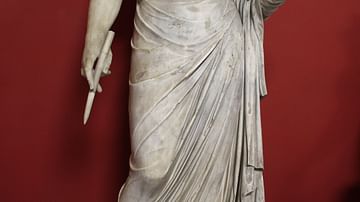
Image
Urania
A sculpture of Urania, the Muse of Astronomy. Originally the statue was of Persephone but recarved and with a head addded taken from a 2nd century CE statue of another Muse. (Vatican Museums, Rome).

Image
Melpomene
A 1st century CE Roman sculpture of Melpomene, the Muse of tragedy. She holds a sword and the tragic mask of Hercules. (Vatican Museums, Rome).
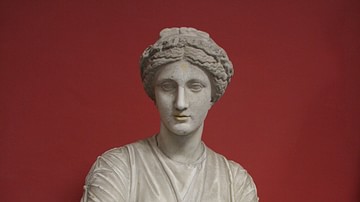
Image
Clio
A Roman sculpture of unknown date depicting Clio the Muse of history. (Vatican Museums, Rome).